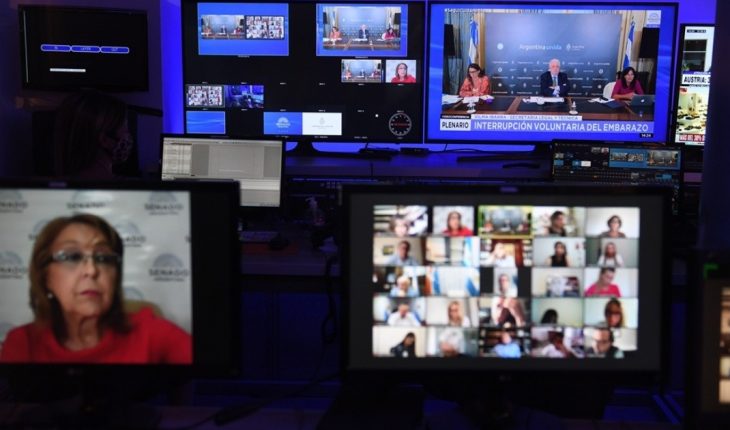This Wednesday was the third day of exhibitions of the plenary of committees of the House of Senators to discuss the Project of Voluntary Interruption of Pregnancy (IVE). There were interventions by sanitarists and legal medicine experts who decided on the effects that law enforcement could have. The first of the exhibitors, Stella Manzano, a gynecologist and legal medicine specialist, favored the legalization of abortion and defended the proposal by considering that it “saves lives of rape pregnant girls who triple their risk of dying in childbirth from the largest.” Instead, María de Urraza, an obstetrician, considered that the initiative aims to “promote genose abortion, legitimize those already performed in hospitals, abortion at free demand and without gestational age limit and frighten doctors who resist acting against their conscience”. He also raised that the practice of abortion involves “emotional suicide”, an idea that was questioned by several legislators, including Matías Rodríguez and Nancy González, of the Front of All.
Cecilia Ousset.
Another guest was Cecilia Oussat, a physician specializing in Gynecology, Catholic, a objector of conscience and in favor of the legalization of abortion. The professional was reported with her partner after applying the ILE (Legal Interruption of Pregnancy) to Lucia, an 11-year-old girl, who had been raped by her grandmother’s partner. In his speech, Oussat talked about class differences regarding abortion and read a letter Lucia wanted to send to senators. “Doctor, tell senators that no minor has to go through what I went through,” she said at the beginning of the text.
The question of eugenics and birth control was brought back to debate during the afternoon, when the doctor
Graciela Moya, a bioethics specialist at the Catholic University of Argentina, recalled that during Nazi Germany “there was legislation” in which people with disabilities were “eliminated” and noted that in countries in northern Europe or Uruguay the births of children with Down Syndrome had decreased.
Her exhibition sparked intense protests from the Peronist senator for Tucumán, Beatriz Mirkin, who questioned: “I will not allow it. It affects me personally.” She added: “I’m not going to let her or anyone, as a Jewish mother, come and tell the senators how we have to vote so we don’t be Genocidal Nazis.”
Beatrice Mirkin.
The Chubutian official, Alfredo Luenzo, also questioned other exhibitors against the law, such as the gynecologist María Cecilia Avila, who called on lawmakers not to “force doctors to murder unborn children.” On this, Canvas remarred: “The thing about killing children is an outburr that we can’t afford. No one promotes the death of any human being.” In this context of the day there was a cross between legislators of the Front of All because of the way the debate unfolded and the head of the official bench, the senator for Formosa, José Mayans, who defended Moya arguing that he “does not deserve that attack” was intervened because he “made a historical reference since here, earlier here, earlier , there was also talk of eugenics.” She also called on the driver of the debate, the chairwoman of the Committee on Women’s Banking, Norma Durango, to “be impartial”: “You can tell a lot that, when they speak exhibitors who disagree with you, they all go out to attack them.”
In this note:





